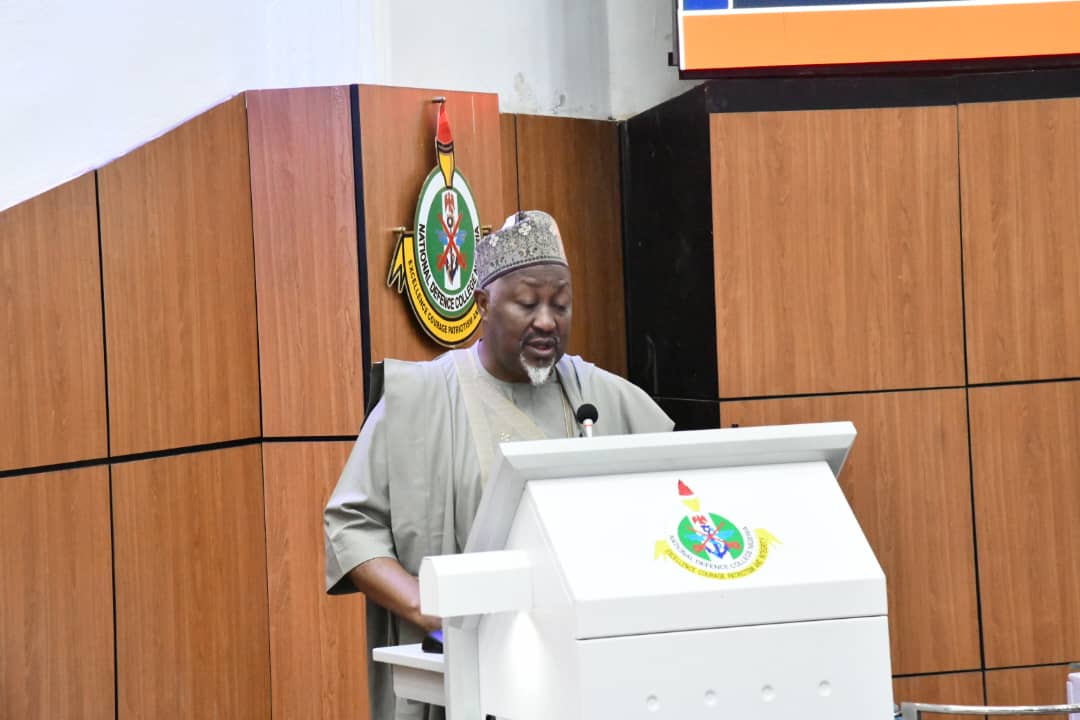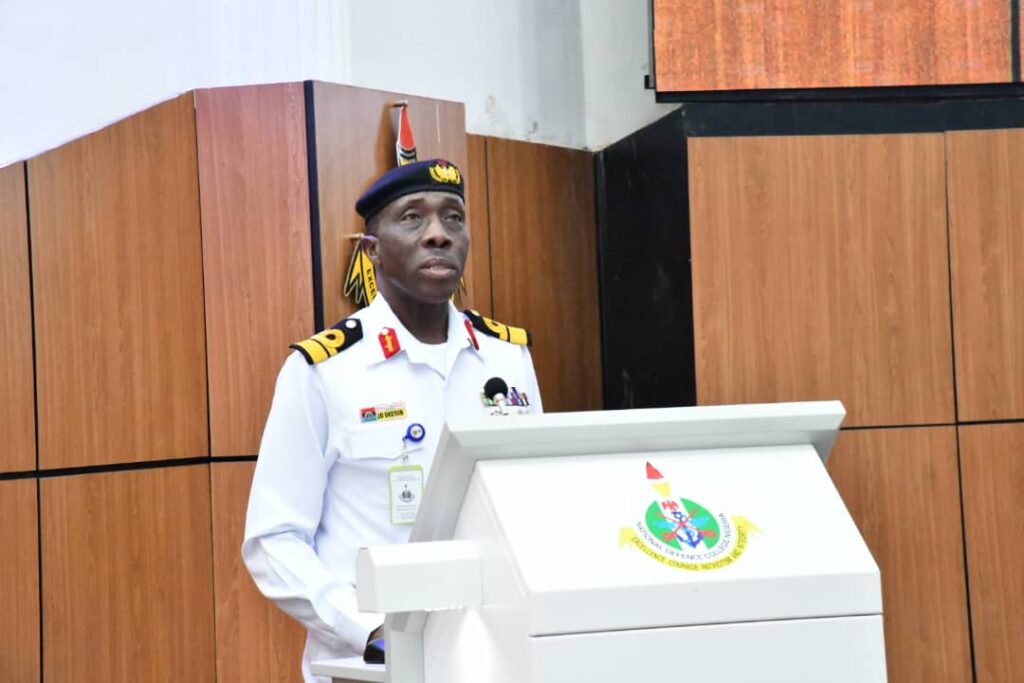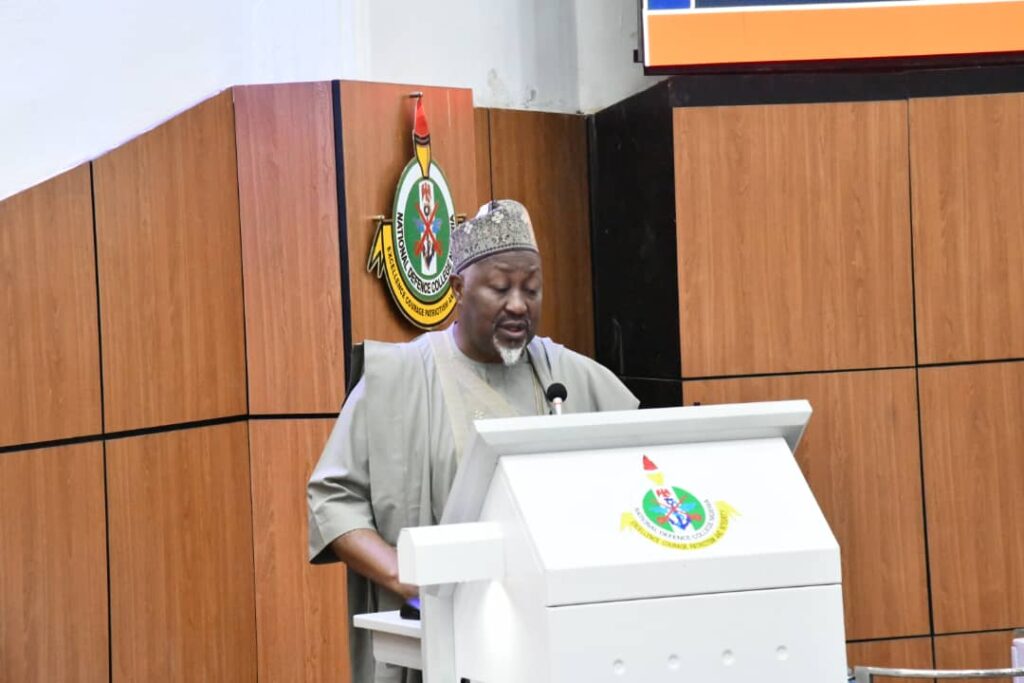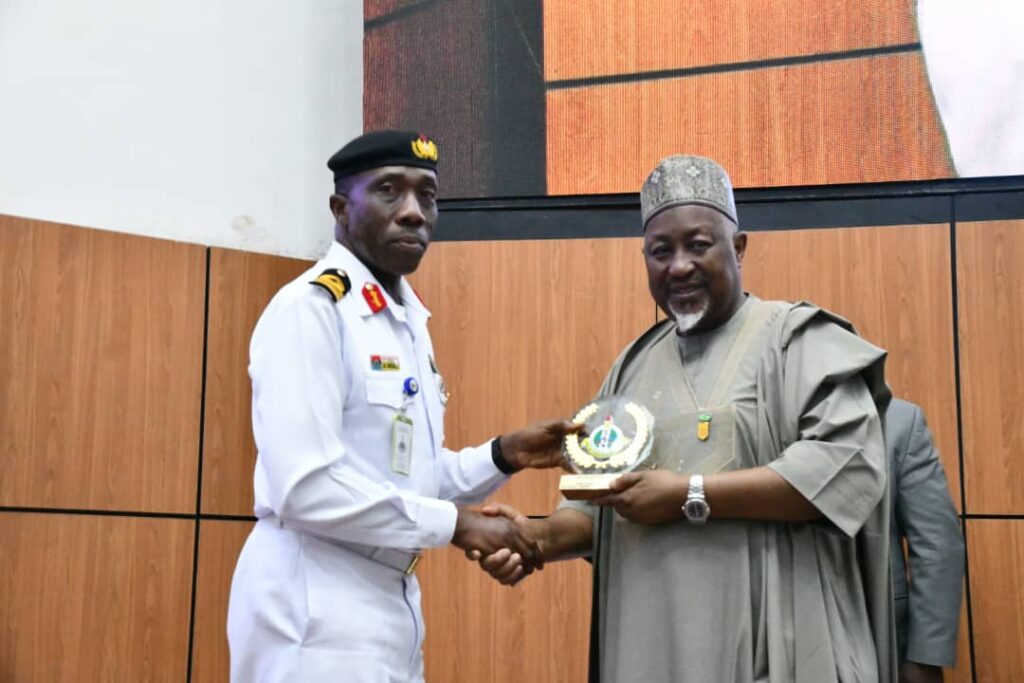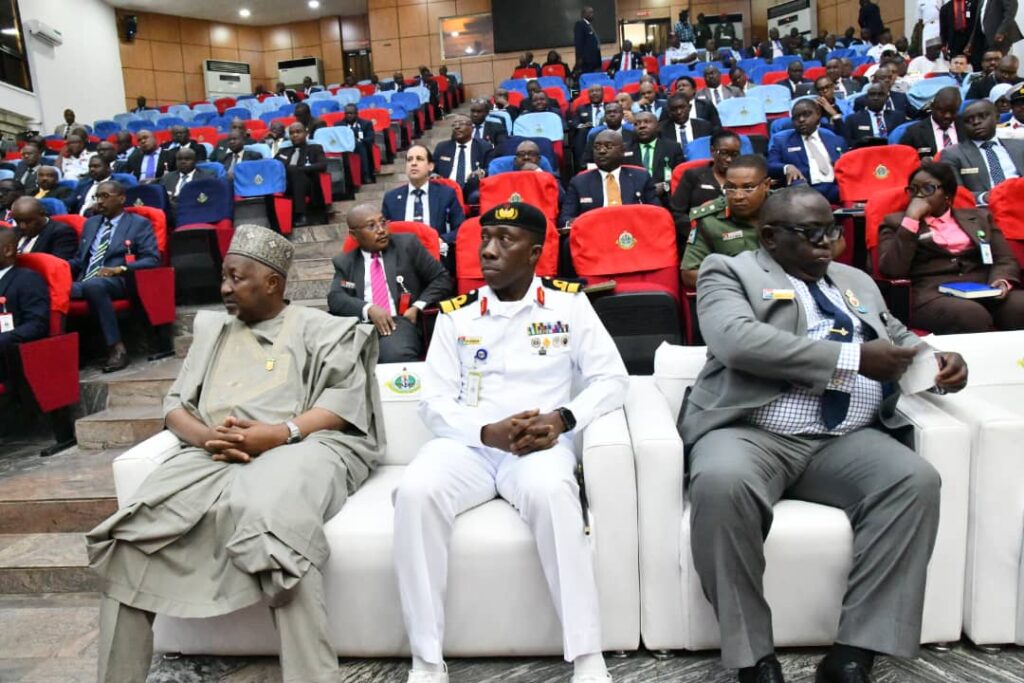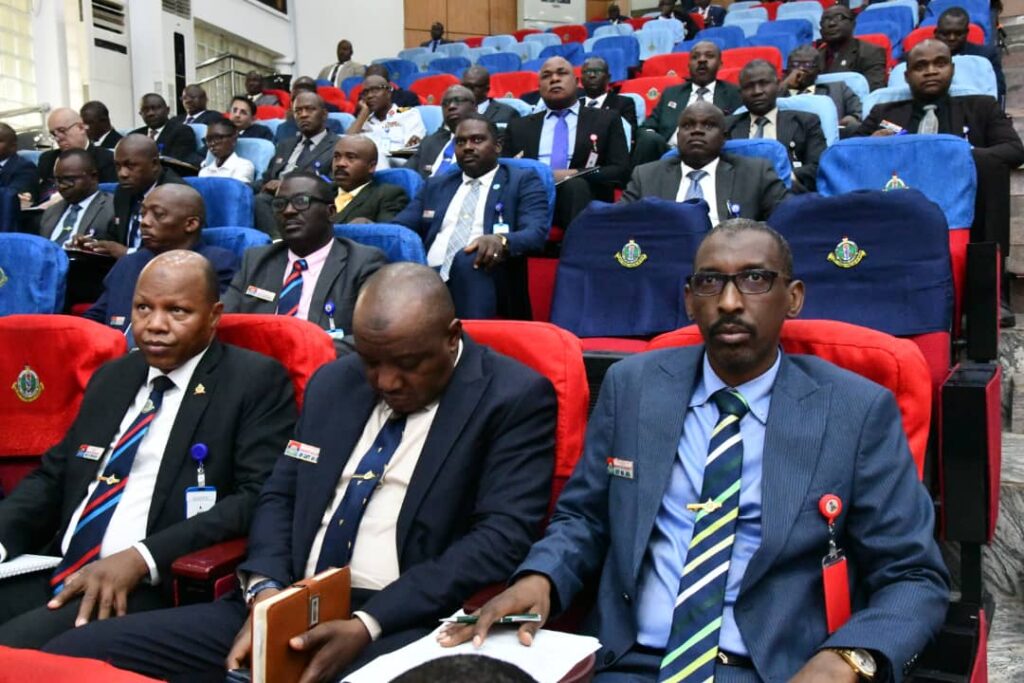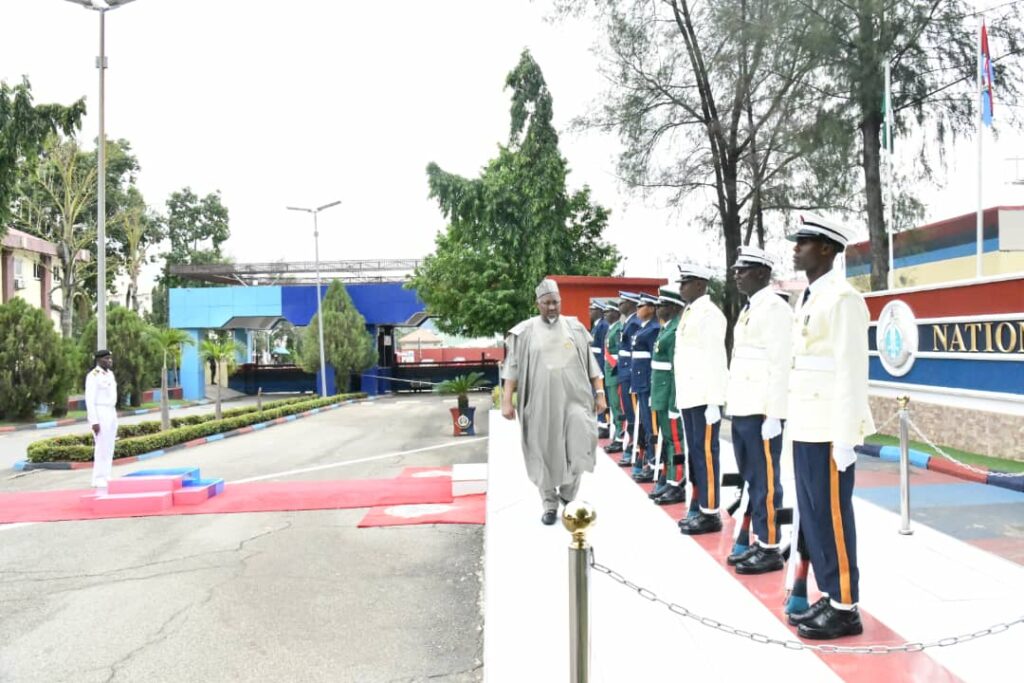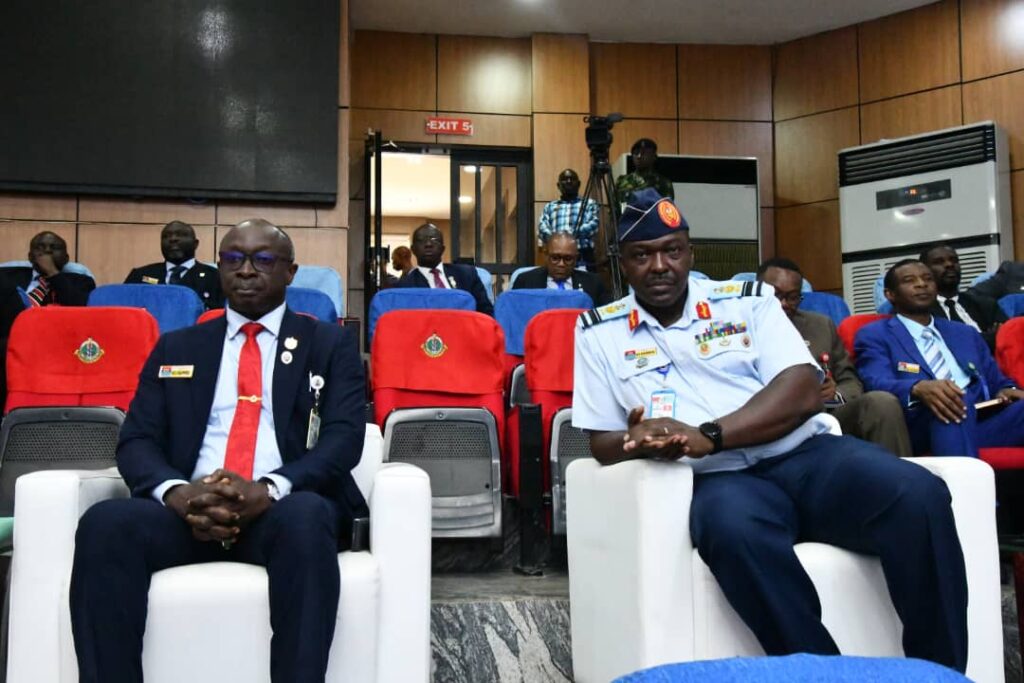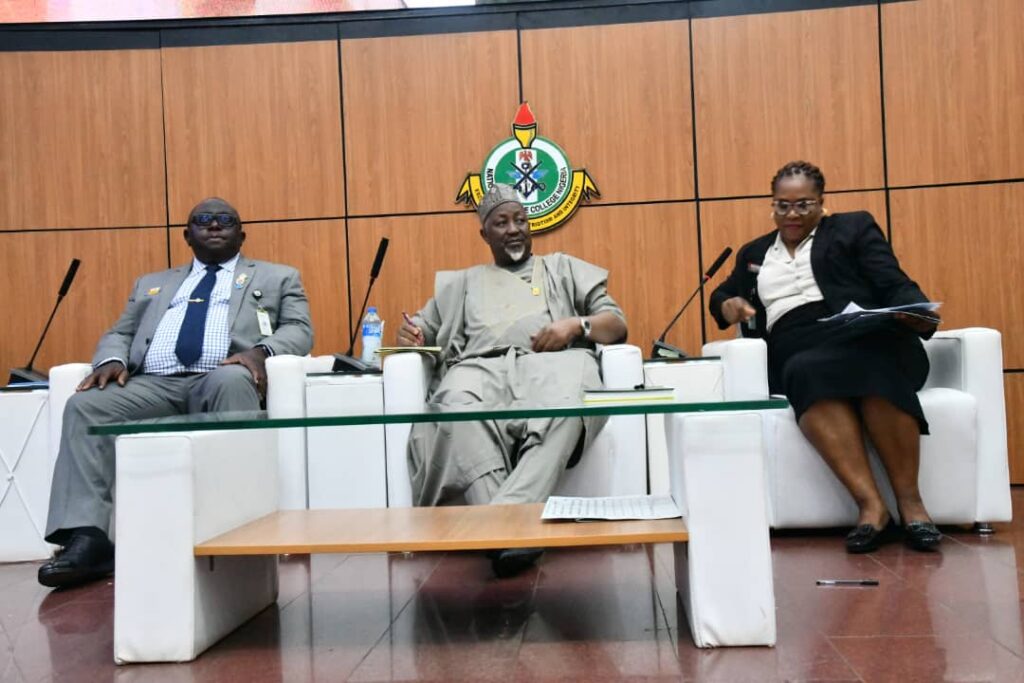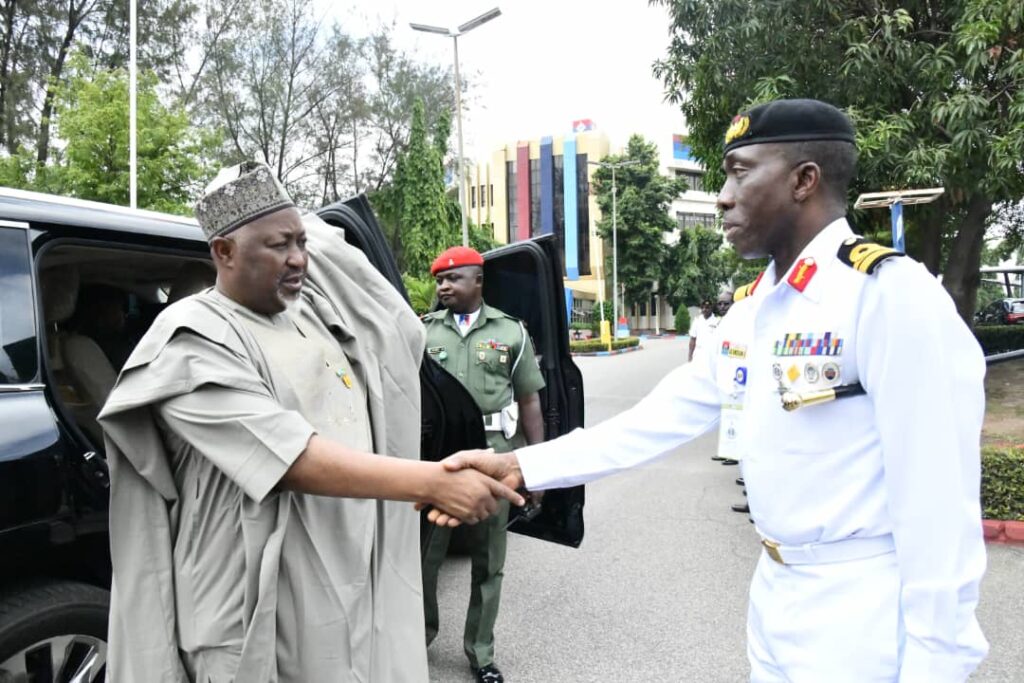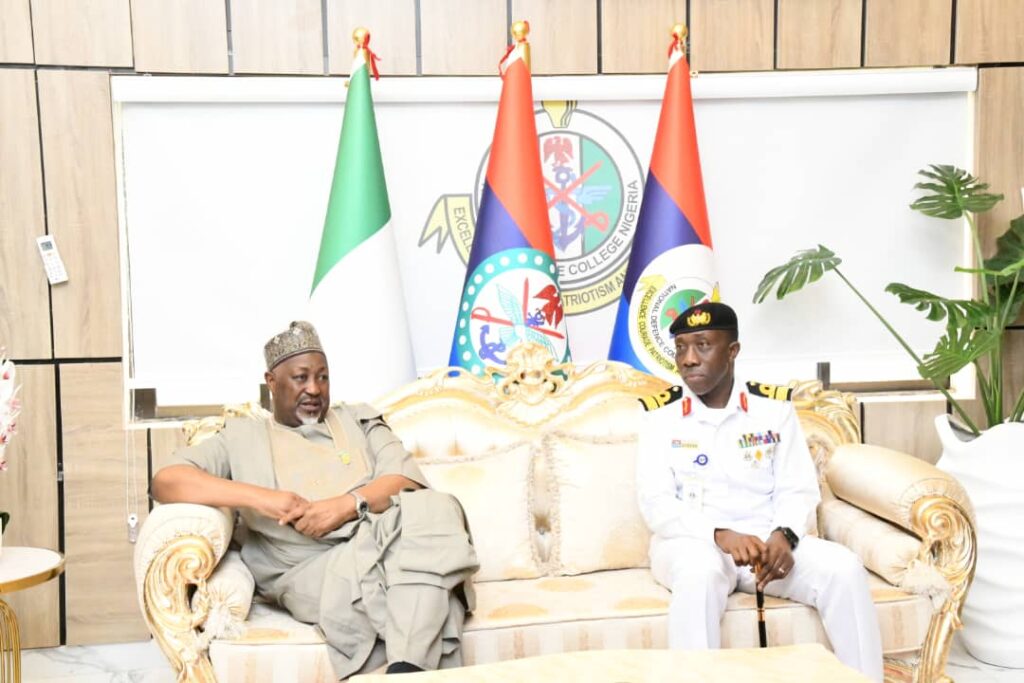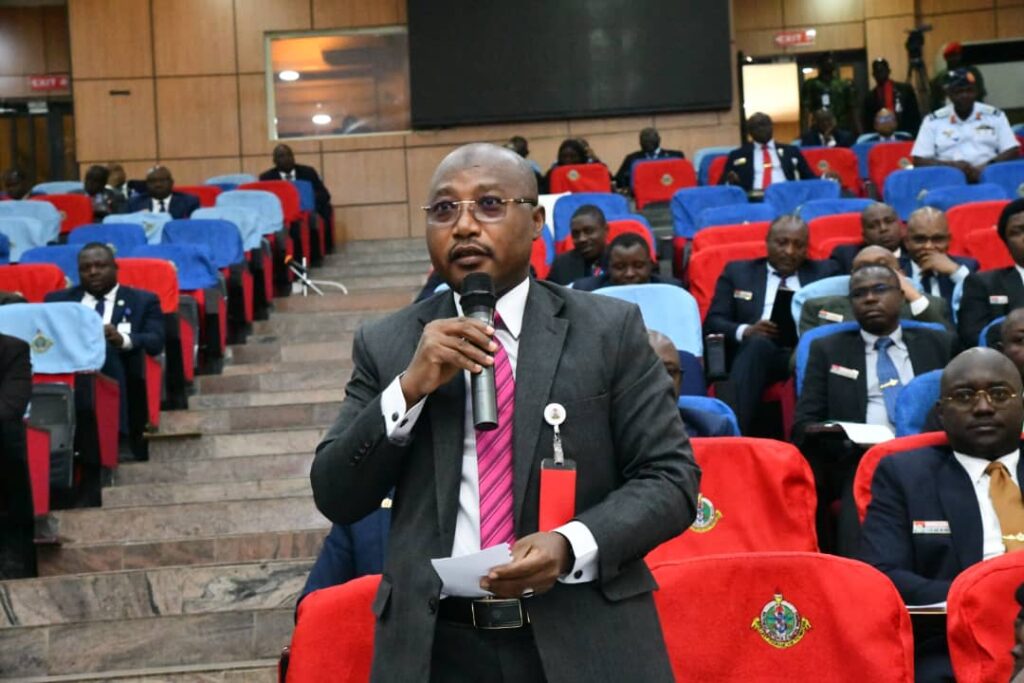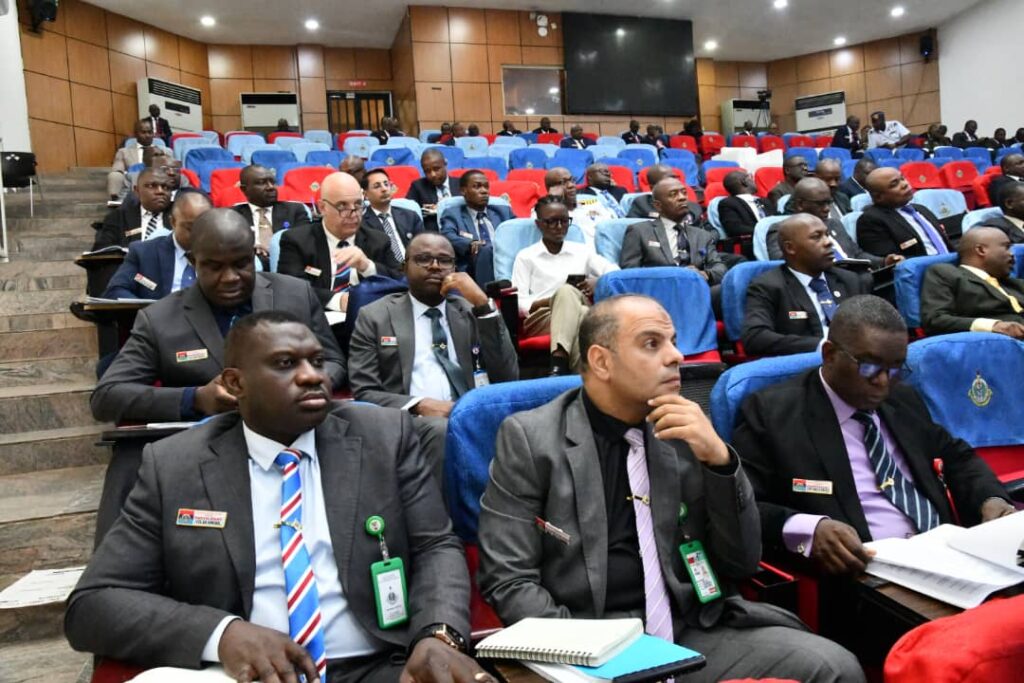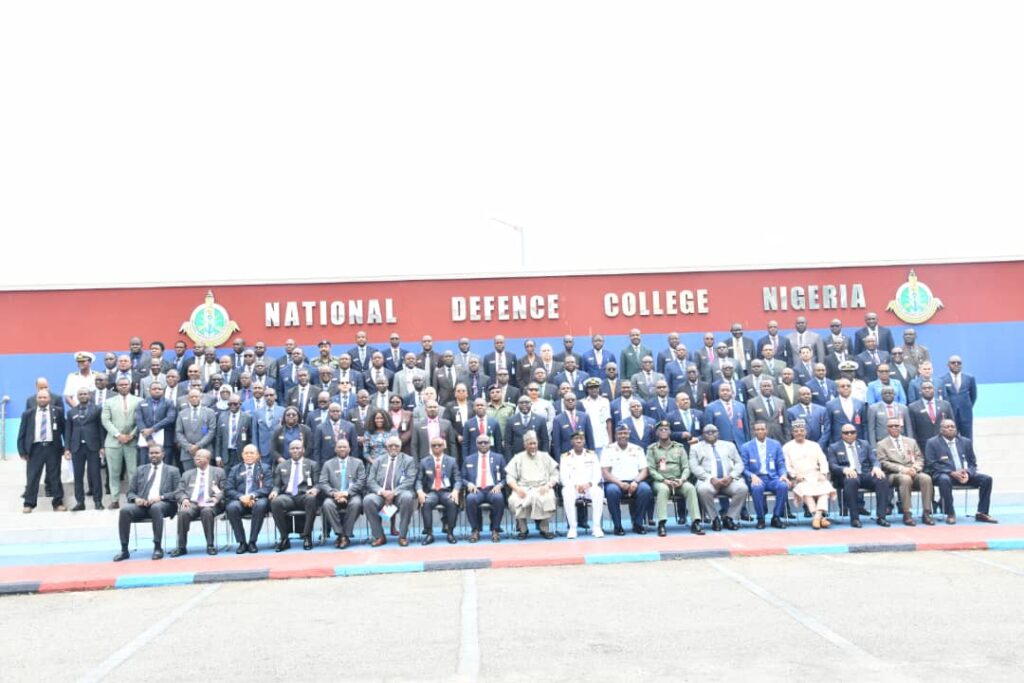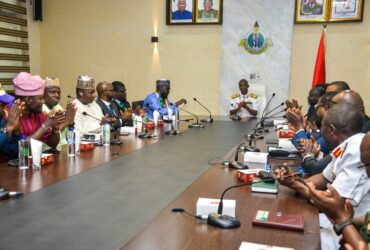Defence Minister Advocates Robust Strategic Management Framework for National Security
The Honourable Minister of Defence, His Excellency Dr. Mohammed Badaru has reiterated the critical role of effective strategic defence management in safeguarding Nigeria’s sovereignty, national interests, and long-term stability. He made this assertion while delivering a high-level lecture to participants of Course 33 at the National Defence College (NDC), Abuja, Nigeria’s apex institution for strategic-level military and security training.
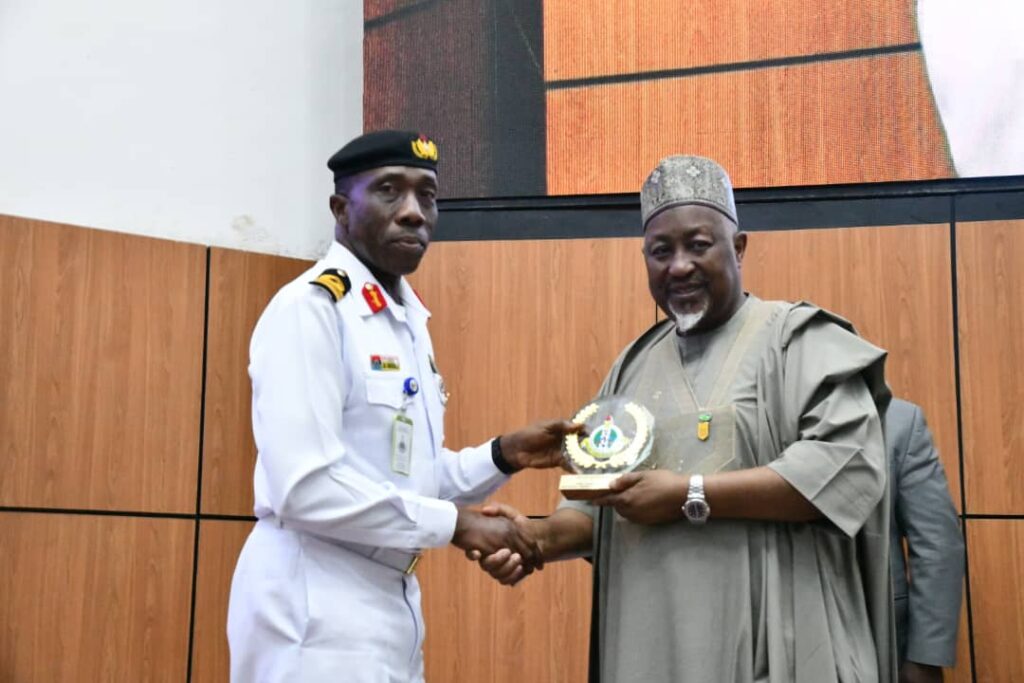
Titled “Strategic Defence Management in Nigeria: The Ministry of Defence in Perspective,” the lecture served as a comprehensive exposition on the evolving dynamics of national security, and the vital role of the Ministry of Defence (MOD) in coordinating policies, operations, and institutional reforms that align with contemporary strategic imperatives. Dr. Badaru emphasised that strategic defence management goes beyond routine military operations; it entails a multi-dimensional approach incorporating policy development, military capability enhancement, inter-agency coordination, and judicious resource allocation. He stressed that achieving these objectives requires visionary leadership, strategic foresight, transparent governance, and sustained intergovernmental collaboration.
“Our approach to defence must be deliberate, integrated, and forward-looking. In a volatile global security environment, Nigeria must remain proactive and agile. The MOD, in line with Mr. President’s Renewed Hope Agenda is driving reforms that prioritise capability development, jointness in operations, and strategic partnerships both locally and internationally,” the Minister stated.
Highlighting some of the ongoing initiatives of the Ministry, Dr. Badaru outlined efforts geared towards enhancing defence procurement processes, strengthening civil-military relations, fostering research and innovation in defence technologies, and expanding training opportunities for armed forces personnel. He further underscored the importance of institutional synergy between the Ministry, the Services, and key national and international stakeholders to ensure Nigeria is well-positioned to respond to current and emerging threats, including terrorism, cyber warfare, transnational crimes, and asymmetric conflicts.
The Minister also used the occasion to express appreciation to President Bola Ahmed Tinubu, GCFR, for his continued support and strategic direction for the nation’s defence architecture. He noted that the President’s unwavering commitment has provided the Ministry with the political will and operational leverage to pursue its mandate effectively.
In his closing remarks, the Commandant of the NDC, Rear Admiral James Ohimai Okosun, expressed profound gratitude to the Minister for honouring the College with his presence and for delivering what he described as a “thoroughly enlightening and thought-provoking discourse.” Rear Admiral Okosun noted that the lecture added significant value to the intellectual development of Course 33 participants, offering them a clearer understanding of the complexities involved in managing national defence at the strategic level. He added that the insights provided by the Minister would enrich ongoing discussions within the College and help sharpen the strategic thinking of participants as they prepare to assume higher leadership responsibilities. “This lecture is not only timely but highly instructive. It has illuminated key areas of defence policy, institutional leadership, and strategic collaboration that are essential to strengthening Nigeria’s national security framework,” the Commandant stated.
The event concluded with a standing ovation as participants and faculty members acknowledged the Minister’s contributions to defence transformation and his dedication to ensuring the operational effectiveness of Nigeria’s armed forces.



